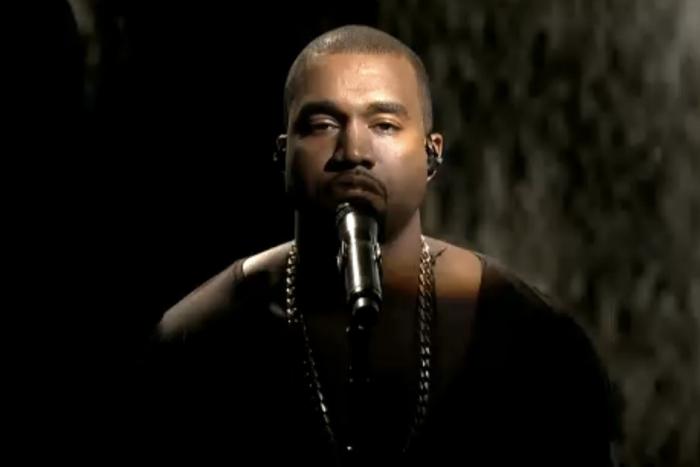My parents are both profs, so my sister and I spent a goodly amount of our childhood merrily running up and down the halls of the psychology department unsupervised, no doubt making a ton of noise and annoying everybody. Also, on one historic occasion, my mum went hunting all over the house for a student’s thesis on which she had written her comments (this was the early 1980s, when handwriting still existed) only to find it in our arts and crafts cupboard, where my dad had stuck it, thinking it was scrap. My mum went to her student’s defense holding a paper with squirrels Magic Markered all over the back.
A new study in The Journal of Higher Education examines how universities help or hinder faculty in balancing their work life with their family life—specifically, male faculty. Margaret W. Sallee, from the University of Buffalo, investigates how institutional policy and culture at three universities encourage or discourage fathers from taking on an equal share of responsibility at home.
Sallee conducted her interviews at universities she dubs (for confidentiality’s sake) Western, Eastern, and Southern. She conducted interviews with 51 fathers, speaking with 16 at Western, 16 at Eastern, and 19 at Southern. All were tenured or tenure-track, and had children under 18; two were separated or divorced, the rest married to women. The dads ranged in age from their late 20s to their late 60s, and worked as assistant, associate, or full professors in fields including the humanities, social sciences, engineering, veterinary medicine, law, and business.
Academia has often been seen as one of the better work environments for parents. Profs can cancel classes if they must, and conduct their research on their own schedules. Compared to dads working in offices with strict nine-to-five hours, professors are in a privileged position. But that doesn’t mean male professors are taking advantage of “family friendly” policies as often as female professors are. Sallee asked whether “family-friendly,” in these universities, actually amounted to being “mommy-friendly,” and not “father-friendly.”
Sallee found that the three universities stacked up like this: Eastern’s policies and culture could be labelled “passive opposition”; Southern’s as “conditionally supportive”; and Western’s as “actively supporting fathers.”
One clear finding from Sallee’s work is that having policies in place isn’t enough; dads have to feel like it’s okay to take advantage of them. Eastern does offer an automatic one-year extension of the tenure clock when a faculty member has a baby (or has a fire in their lab—apparently these amount to the same thing). They also have a child care facility, although it’s too small to serve most faculty. However, they don’t offer leave or reduction in teaching duties after the birth of a child, for either fathers or mothers. One professor dad at Eastern said, “It’s sort of my sense that it’s my responsibility to balance work and family... I don’t consider the institution as acknowledging parenthood in any of the ways we go about doing our job.” An administrator said that while the tenure clock extension is offered, most faculty don’t choose to use it, and admitted that people who use it are likely to be promoted more slowly than those who don’t (but attributed this to the “kinds of people” who choose the extended clock). As Sallee writes, “Such rhetoric suggests that there is a type of faculty member who is likely to succeed at Eastern University—one who prioritizes work over family.”
Southern University had better policies than Eastern—moms and dads can both get a semester off teaching following the birth of a child, as well as a one-year extension on their tenure clock. Spousal hiring is offered, and the child care on campus had recently been expanded. However, Sallee found that the culture was such that professor moms were more likely to take advantage of these benefits than professor dads. On the subject of taking parental leave, one dad said:
“In those early months, where, as a woman, you have to deal with ‘Are you going to breast feed?’ and ‘How much time are you going to take off?’ I think it would have been a problem if I had said, you know, I’m going to take six weeks off to spend with my wife and my newborn. I think there would have been some people going, “Why do you need to take time off? You know, you’re the man.”
Administrators and department heads even expressed a suspicion that dads taking the tenure clock extension were doing it not to hang out with their families, but to get more time for research.
Western University came off the best in Sallee’s study. Tenure-track moms and dads can extend their clocks twice, the university funds replacement teaching costs, and moms or dads adopting a baby are eligible for a quarter of the year off. One professor told Sallee that, on receiving approval for his request to extend his tenure clock following the birth of a child, he had thanked the vice provost: “I just said, ‘Hey... I just wanted to say thank you for granting my request for adjusting the clock... because I had kids.’ And he said, ‘You don’t have to thank me.’ He says, ‘I approve those routinely.’ And I said, ‘Well, I was informed that it would be a big deal for me, because I was a male.’ And he said, ‘Are you kidding me?’” It’s worth noting that the professor dad was initially misinformed about his eligibility for tenure clock extension.
What stood out most for Sallee at Western was the child-friendly culture. She recounts an interview she conducted with a department chair about bringing children in to work:
“One of my outstanding faculty members, he had to give a presentation... his secretary came running, whispering to me... his daughter was sick and she’s here with him... I said... I don’t have any problem with him bringing his baby with him. She said, ‘The faculty’s baby?’ I said, ‘Why not?’ She said, ‘Really?’ I said, ‘Yes’... and she said, ‘Okay, I will tell him.’ So..., he came with his beautiful little girl, an absolutely adorable little girl. She was like 6 or 7. I think she was sick and she didn’t go to school or something. This blond, beautiful little girl, she was so cute just sitting over there, and she’d like draw and she would say a few random things here and there, and everybody would chuckle. I thought it was amazing. It was beautiful. So, [the faculty member] came up to apologize... I said, ‘What are you apologizing about? To me this is perfect. Just great.’... So, I tell everybody, and I really, really mean that... that people should feel comfortable so long as it’s their decision when they bring their kids here, to babysit their kids here if they want to.”
With so much media uproar lately over the female top brass at Google and Facebook and their short maternity leaves, it’s worth noting that Sallee also found that one of the main predictors of how likely dads are to take advantage of leaves or teaching relief was how often senior male faculty members took advantage of them. If the department head is a new dad and takes paternity leave, it’s a lot easier to feel like he won’t judge you if you do the same.
It seems like a lot of these problems would be solved if men quit judging other men for taking time for their families. Sallee reported previous research showing that men who work in male-dominated environments are unlikely to take leave, whereas men who work in female-dominated environments are much more likely to take time off to be home with their kids. (Weirdly, this is not true of women who work predominantly with other women; they take less leave than women who work predominantly with men.) It’s in everybody’s interest for dads to hold up half the parenting sky.
Studies Show runs every Thursday.






